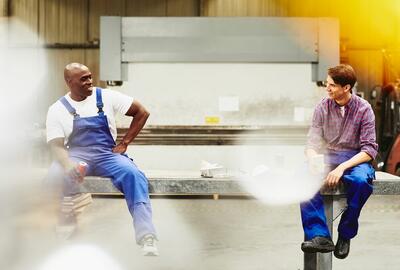We’ve all had good and bad supervisors – those who lead, motivate and inspire and those who, well, just don’t. A site supervisor is in charge of a construction site and making sure everything goes where it should, when it should. The job also involves looking after health and safety so it’s a really important role. Without a decent site supervisor on board, builds can get delayed and workers can end up injured. It takes someone who is well-organised, personable and resourceful to have a successful supervisor career.
Day-to-day work as a site supervisor.
The work of a site supervisor is pretty diverse and if you likevariety it could be a great role for you. Your responsibility begins with the planning of a project and continues right through until its completion covering everything in between. If it’s a small site, you might be responsible for all of it. In the case of a larger project you might only be responsible for part of it.
In any case, it’s a job with many hats - you could deal with supervising, planning, monitoring, adhering to policies, dealing with staff and sub-contractors, procuring materials, ensuring quality is met, resolving problems, monitoring budgets and maintaining health and safety.
Qualifications and experience needed for site supervisor jobs.
Aside from being able to juggle many different things at once you’ll ideally be educated to degree level, possibly in a related subject such as civil engineering is always preferable. Most graduates will work towards chartered status – a professional qualification you can gain on the job.
You can enter straight from school, normally via an apprenticeship and earn while you learn – great if you don’t fancy the academic route and for giving you lots of valuable practical experience. Relevant experience will always appeal to employers so think about undertaking a work placement or getting sponsorship from an employer. Placements are also a great way to get to know an industry and decide if it really is the right career for you.
Skills.
Top of the list has to be good communication skills. As a site supervisor you’re essentially the middle man between contractors and workers and the project manager so brilliant diplomacy skills are a must. Leadership and planning skills are also pretty important as are computing and literacy skills. You’ll have to deal with a lot of people during the day so it pays to be friendly, approachable and fair as well.
Opportunities.
As a junior site supervisor you might be responsible for part of a site or work within a team but as you gain experience and possibly chartered status you can take on more responsibility. You could move into construction management, consultancy or contract management. Alternatively, you could specialise in health and safety or building inspection. Build yourself a solid future as a site supervisor and help take an active role in the buildings of tomorrow.



